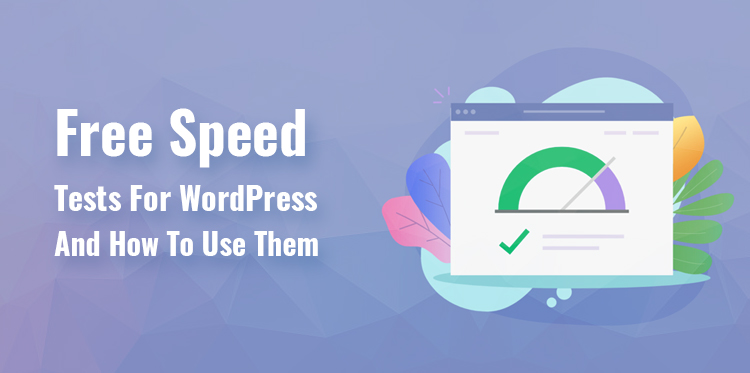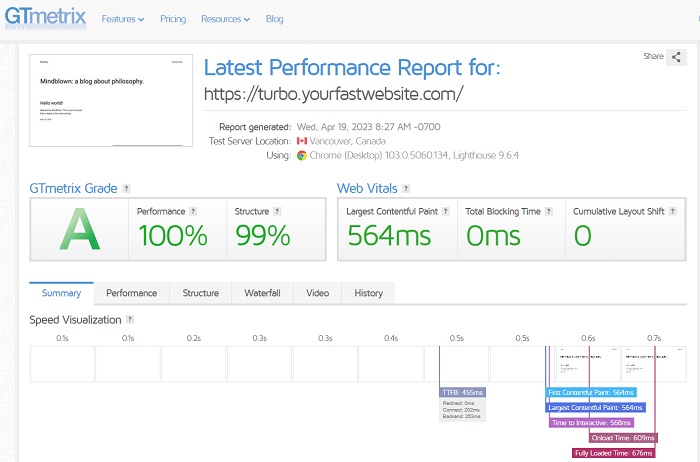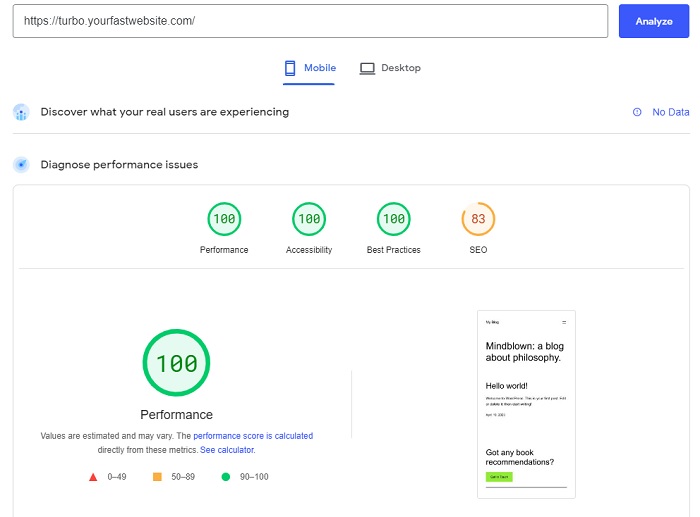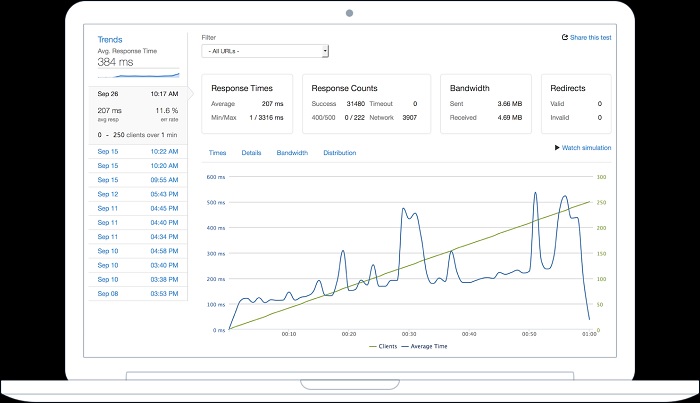You’ve probably heard a lot about WordPress speed tests, especially if you know the importance of having a WordPress site that loads quickly. Speed tests are the best way to ensure that you have the right ingredients to make Google and your user’s happy.
Table of Contents
In this article, we’ll talk about what a speed test actually is, how to use it, a common error you may run into with your web host, and 3 different free speed tests to check out and what they may tell you.
What Is A WordPress Speed Test?
Many hosting companies tell you that their hosting is fast, but speed is relative, right? How can you truly prove that and compare results? That’s what speed tests do.
They collect the information by pinging your site and then putting together a variety of different metrics and grades to help you understand how your site did. Sometimes they’ll even offer recommendations as to what to fix or focus on to make your site faster!
How Do I Use A Speed Test?
It depends on the test but ideally you just enter in your URL and press go. Some tests will try to get you to pay or download software. In our opinion, that’s really not necessary as there are many free options (see below for our recommendations).
We recommend saving results by either screenshotting or downloading a PDF of the speed test that you do so you can review it later. Sometimes these tools limit your free tests or there may be other factors that could influence later speed tests.
What Can Influence The Speed Of My WordPress Site?
For a more specific answer to your unique site, you can run a report below but generally speaking, there are a lot of different variables! The biggest thing you can control is selecting the right hosting company, selecting the right WordPress theme, and enabling caching.
If you truly want the fastest caching available, try finding web hosting that utilizes LightSpeed web server software instead of Apache web server software. This can be up to 15x faster than Apache and it should not be an incremental cost, it’s just simply newer technology!
For WordPress free themes, I always recommend doing a speed test on a demo site. That way you can get a feel for how a theme may perform before actually purchasing it.
Lastly, “enabling caching” on a WordPress site (as suggested above), may sound complicated but there are tons of different WordPress plugins that make this easy. You can of course get very complicated with caching as well.
What Happens If My Test Fails Or The Test Says My Site Is Way Slower Than It Actually Is?
It’s always good to do a quick gut check. If you run one of these tests and it shows a super slow result but when you try to load your site, especially on multiple devices, then you could be getting blocked by DDOS protection.
You may have to contact your host provider and ask them to whitelist an IP address for the test or the tool in particular.
Our Three Speed Test Recommendations:
1. GTMetrix
This is our favorite test because it offers a grade and is really easy to understand coloring so that you know right away whether or not your speed test was favorable or not.
It also has a bit of complexity if you like to get into the weeds. Do note, even if you have a lower grade, you may be tapped in terms of speed if you have a lot of 3rd party tracking pixels or you use HubSpot for example.
If you click the “Structure” tab, you can even see how big of an opportunity and impact certain characteristics are of your site. This is where you can use plugins and other things to try to speed your site up if your images need to be compressed for example.
2. Google PageSpeed Insights
This tool is a little less helpful with some of the metrics but it is Google so it’s important to pay attention to for SEO reasons.
You can toggle between devices at the top – it’s important to focus on mobile as the majority of traffic to your website will most likely be mobile and Google weights mobile site speed higher than desktop site speed. This one is also nice because it has some high level SEO analysis as well.
3. Loader.io
This one is for the super advanced but it’s a really useful tool that sends bursts of traffic to your WordPress site to ensure it can handle spikes in traffic instead of just a one time hit like the other two tools mentioned.
They do have a free plan that you can sign up for but it requires you to verify that you actually own the site that you are testing by placing a tag into your HTML or updating your DNS.
The reason for the extra verification is that you can send hundreds of visits to a target URL and people can abuse that basically and create a DDOS attack.
Final Thoughts
That about wraps it up for our guide, we’re confident that you can get a true read on your WordPress site’s performance by running these three tests and comparing results with what you and maybe a friend or colleague experience in terms of speed.
Lastly, our advice is that it’s important not to get too fixated on site speed in the very beginning of building your business. If you have a B grade, or are just average on site speed, the juice is not normally worth the squeeze to get to A or 100/100 and Google won’t penalize you for that.
As long as you aren’t bottom of the barrel, and frustrating your users with a slow site experience, you’ll likely be in good shape!




